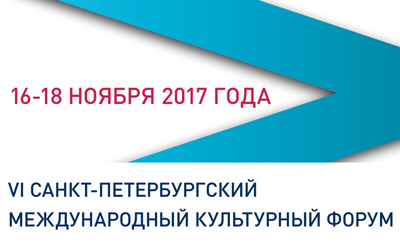- НОВОСТИ, ОБЪЯВЛЕНИЯ
- АБИТУРИЕНТАМ
- ОБРАЗОВАНИЕ
- УЧЁНЫЙ СОВЕТ
- Конкурс на замещ. должностей
- ПРЕСС-СЛУЖБА
- ФОТОГАЛЕРЕЯ
- БОЛЬШОЙ И МАЛЫЙ ЗАЛЫ
- Фестиваль Неделя Консерваторий
- НАУЧНАЯ ДЕЯТЕЛЬНОСТЬ
- ФОЛЬКЛОРНЫЙ ЦЕНТР
- Специальная музыкальная школа
- ГАЗЕТА «КОНСЕРВАТОРИЯ»
- ЖУРНАЛ «OPERA MUSICOLOGICA»
- ЖУРНАЛ «MUSICUS»
- П Р Е С С А
- СЕКТОР ТРУДОУСТРОЙСТВА
- С Н Т О
- ЮБИЛЕИ 2018
- АРХИВ
- БИБЛИОТЕКА
- КОНКУРСЫ
- ИЗДАНИЯ
- СТУДЕНЧЕСКИЙ АЛЬМАНАХ
- ЭС "СПб КОНСЕРВАТОРИЯ"
- КАК НАС НАЙТИ
- ПОИСК ПО САЙТУ
- ИНФОРМАЦИОННЫЕ ПАРТНЕРЫ
- Противодействие коррупции
- Содействие лицам с ОВЗ и инвалидам
History of the Festival 2001–2010The International Conservatory Week is celebrating its tenth birthday in 2010. This is quite an age for a music festival functioning in the academic music domain, an age that gives it a right to look back at our illustrious history. In 2001, when the Small Hall, Conservatory’s main concert stage, became operational after a massive restoration, the St. Petersburg Conservatory established the first international forum and the concept of the artistic integration of the oldest Russian Conservatory into the world music process emerged. From that point on the festival has been conducted annually, pulling into its orbit greater and greater numbers of creative partners from the best schools of music from different countries, expanding the scope of fame and influence of the renowned St. Petersburg school of performance and composition. Naturally, the musician has become the hero of the Conservatory’s festival project working for the future of the Russian music culture and professional career of its pupils. Different sides of the creative individual, the role of “school” in the individual’s becoming, importance of music in our country and abroad, mechanisms and ways to promote new talent — these were the themes that made up the conceptual basis of the festival. The wide scope of different themes for concert programs, scholarly conferences and educational seminars, open lectures, rehearsals and master classes, documental and artistic exhibitions, presentations of musical instruments and publications fill the Conservatory Week, and define the multi-genre structure of the project creating a comprehensive image of the modern musical professional. An event of varying scale and importance for Russia, St. Petersburg and Conservatory music history were brought together in a tenyear ‘capsule’ that changed in size and form: changes in federal ministers, St. Petersburg officials and Conservatory leaders, the tireless labor of professors and ambitious aspirations of a few generations of students, artistic achievements of musicians of different levels of talent and ambition, selfless devotion of the festival organizers and ten years of their restless life with personal gains and losses. Today, as in 2001, the International Conservatory Week remains a unique project unparalleled in the musical world. The forum is a laureate and winner of The Best International Project of the Year competitions (2002, 2003), speaks 38 languages, enjoys popularity in many countries, and, entering into the group of festivals long-livers, holds a firm place among more than 207 music festivals annually conducted in St. Petersburg. Every October the house on Theatre Square becomes a domain of artistic communication, a unified concert stage and a lecture hall for musicians of different generations, various national schools and artistic directions. Hundreds of performers unknown by the audience as well as internationally renowned teachers and scholars are drawn into the artistic aura of the St. Petersburg Conservatory. Thousands of professionals and music lovers, discover new names and feel connected to an international community of people who live and breathe music. The best music schools of Russia, states of the former Soviet Union, USA, Canada, Japan, China, Great Britain, France, Italy, Spain, Switzerland, Sweden, Netherlands, Belgium, Luxembourg, Denmark, Germany, Austria, Hungary, Poland, Finland, Israel, Argentina, Chili, Guatemala, and Panama have been featured on the festival posters during the Conservatory Week. The festival’s history compasses more than 400 events; including 148 concerts of various genres and themes, 26 open lectures, 123 master classes, 6 scholarly conferences, 5 international educational seminars on concert management, 4 composer competitions for the best works for different instruments and ensembles, 10 exhibitions of documents and materials from the collection of Conservatory’s Scholarly Music Library and various museums, 4 exhibitions of manufacturing companies and 6 presentations of internationally known brands of music instruments, 5 exhibitions of works by beginning and seasoned St. Petersburg artists, 5 presentations of music-themed publications and more than 70 international, Russian and St. Petersburg premiers of works by modern composers. More than 4500 artists have performed on the stages of the Conservatory and other concert halls in St. Petersburg; totalling 40 orchestras and 14 choirs, 36 conductors, more than 50 instrumental ensembles and more than 240 soloists. The history and geography of the project can be easily seen in the kind of music schools presented in the concert programs, and research and practice sections of the International Week. Over the course of the festival`s history, 158 schools abroad have participated in the festival with many from St. Petersburg and Moscow attending year after year. Description of past years` festival is as follows. 2001
2002
2003
2004
2005
2006
2007
2008
2009
2010
When people talk about the crisis in and the commercialization of classic music, at time when most of the Russian public is under the influence of mass pop culture, and young audiences reject the ritual of the customary concert, the St. Petersburg Conservatory purposefully and optimistically conducts the International Week, inviting young performers and professors from schools abroad to participate instead of stars that would gather a guaranteed audience. They meet with St. Petersburg colleagues, communicate in the unified language of music, come out onto the Conservatory stage, participate in master classes, discover new friends and future partners, and then they leave with a new musical experience and a desire to come back to St. Petersburg. The most persistent and successful do, but in a new capacity: students as laureates of prestigious international competitions, professors with new career positions, often in other conservatories and universities, with new students, compositions, books. For the young musicians of St. Petersburg and their instructors, each new festival is a chance to find out about the newest achievements of national schools in composition, performance, teaching methods, historical research and concert management. There is the mutually enriching sharing of experience, a unique festival atmosphere that pulls into its exhilarating whirlpool practically all the participants and the loyal festival audience, who are attracted by the well-measured balance between tradition and innovation in the concert program, is sympathetic to different genres and styles, from early music to jazz and crossover. The International Week continues its development, generates new creative ideas, but also keeps its structural constants (concert and re-search and practice sections), the names of programs (Transatlantic Dialogue, Organ Academies, Jazz on Theatre Square), and both creates new and revives old conservatory traditions. One of the first festival traditions is a number of special dedications that mark the milestones in the music history of Russia and its cultural capital each year. The 2001 forum coincided with the opening of the Small Hall of the Conservatory after its restoration. In 2002 the International Week celebrated 140 years since the foundation of the oldest Russian Conservatory. The 2003 festival became a musical gift to the city of St. Petersburg on its 300th birthday. Mikhail Glinka’s 200th birthday became the main festival theme in 2004. The 2005 forum celebrated 140th birthday of Alexander Glazunov. The 2006 festival became a musical offering for the 100th birthday of Dmitri Shostakovich. The seventh festival was dedicated to the 145th birthday of the St. Petersburg Conservatory has also celebrated the 125th birthday of Igor Stravinsky. The eighth International Week was dedicated to Nikolai Rimsky-Korsakov and Sergei Rachmaninoff, distinguished Russian composers. The presentation of the Conservatory’s new concert organ to the musical public became the central theme of the ninth festival. The tenth festival in 2010, the year of Russia in France and France in Russia will be dedicated to the Russian-French musical dialogue. A heart-warming tradition of the International Week is its dialogue with foreign diplomatic missions in Russia. Embassies, consulate-generals and foreign institutes of culture not only show support to the Conservatory by acting as members of the Board of Trustees of the international forum, but also their representatives come out onto the Conservatory stage with preambles to concert programs, speaking about music culture in their countries, music schools and performers, stressing the high international status of the festival with their participation. Traditionally, the main Trustee of the International Week is the Committee for Culture of St. Petersburg, which in 2006, took the project under its wing and from that time on has shared the burden of the financial and organizational issues with the St. Petersburg Conservatory. The International Week has restored the tradition of presenting leading figures in music art with Distinguished Professor diplomas; Yuri Temirkanov (2003), Rodion Shchedrin (2005), Saulius Sondeckis (2006), Krzysztof Penderecki (2007) became heroes of gala ceremonies within the framework of the festival. The artistic achievements of these musicians are an inspirational example for young people in Russia and abroad, who choose music as a profession. The annals of the festival include hundreds of publications in Russian and foreign press, radio and TV pieces, videos, miles of past forums recorded on film, CD albums with the best concert performances, memorable mementoes that now live in foreign cities and countries, hundreds of photo documents and letters from members of the Conservatory Week with written gratitude for unforgettable experiences and wishes for further success and prosperity. Organizers of the International Conservatory Week do their best to insure that these wishes are fulfilled, and do everything in their power for the festival to stay a bright and youthfully vivid holiday that invades the fall life of St. Petersburg with its international music and colors, and in doing so, continue to attract the attention and love of thousands of admirers of music art. Lidiya Volchek |



